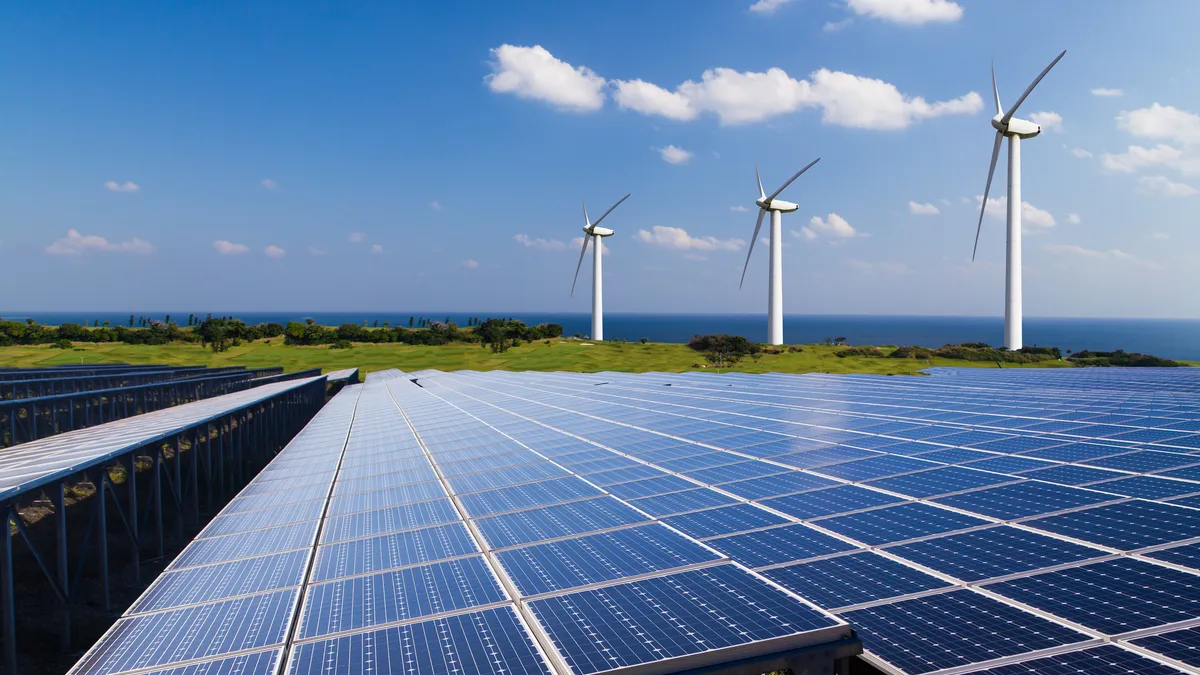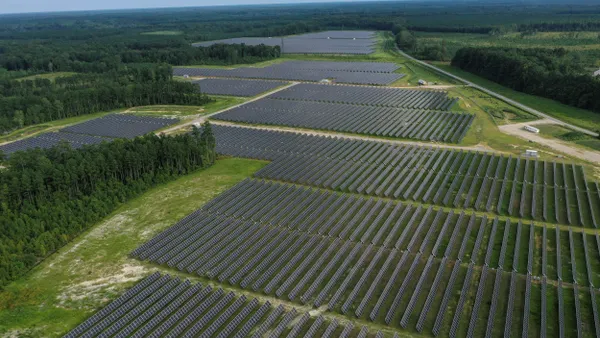Dive Brief:
- While renewable energy developers around the world have seen profit margins decline with rising costs, U.S. companies' margins have remained somewhat more stable thanks to the Inflation Reduction Act, according to a report by management consulting firm Baringa.
- Before the Inflation Reduction Act, U.S. renewable energy projects were on average 14% less profitable than their European counterparts, Caspian Conran, a lead economist at Baringa, said. U.S. projects are now 9% more profitable than European projects, he said.
- Although Baringa expects global renewable energy profit margins to recover in the months to come, the U.S. presidential election could slow the recovery of specific sectors like offshore wind and electric vehicles.
Dive Insight:
While the Inflation Reduction Act did not prevent pandemic-era supply chain shocks from impacting financial returns in the renewable energy industry, a global analysis suggests it did insulate U.S. developers, according to Baringa.
As with their global counterparts, U.S. renewable energy developers have seen profit margins shrink over the past few years as construction costs have increased, David Shepheard, a partner in Baringa's energy and resources practice, said. Insurance costs have also skyrocketed in response to severe weather, and yet overall energy prices have not kept pace, forcing renewable energy developers to compete with cheap natural gas, Shepheard said.
Within the U.S., projects within the Electric Reliability Council of Texas and Midcontinent Independent System Operator territories offer the most attractive returns for investors, according to Baringa's analysis. But even ERCOT, which managed to maintain or increase profit margins through 2023, has seen profits decline this year, Shepheard said.
Still, the U.S. renewables sector has so far managed to avoid the worst-case projections, and should return to a trend of increasing profit margins and declining levelized energy costs within the next year or two — with some caveats, Baringa’s Conran said.
With so many renewable energy projects relying on subsidies created or extended by the Inflation Reduction Act in order to provide returns to investors, the outcome of the presidential election could have an impact on the fate of some types of renewable energy, Conran said. Offshore wind and charging infrastructure for electric vehicles could be particularly hard-hit if Trump wins, Shepheard said. A full-scale repeal of the Inflation Reduction Act is unlikely, he said, but a Trump administration is less likely to support sectors that have made little progress despite absorbing large subsidies, Shepheard said.
Incentives for onshore wind, solar and battery storage are less likely to get cut, Shepheard said, because these projects have produced economic gains in traditionally Republican states and communities. Carbon capture and hydrogen are similarly likely to enjoy continued support despite their high costs and limited success in recent years on account of their popularity with Republican-led states and influential oil and gas companies, he added.














